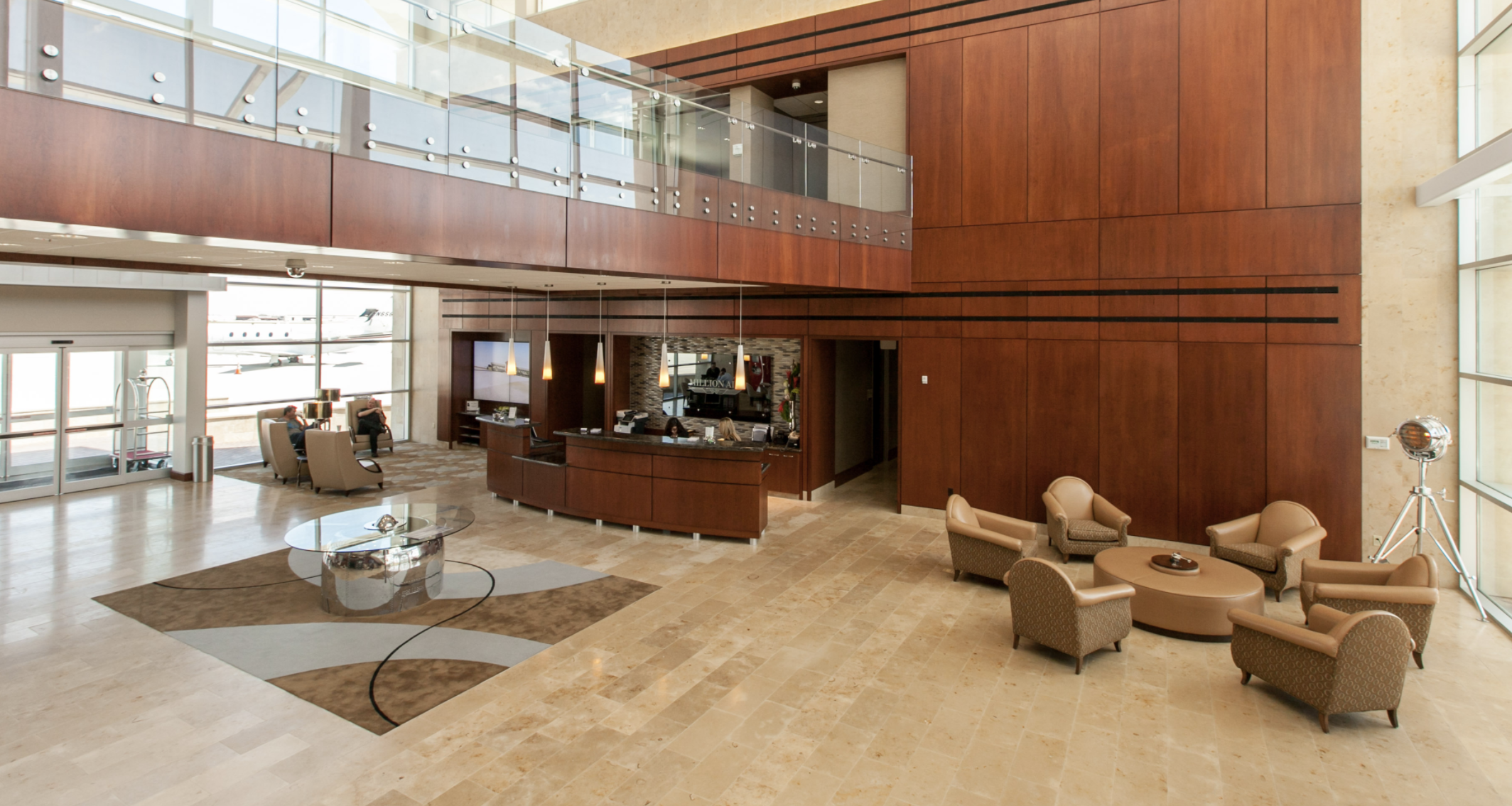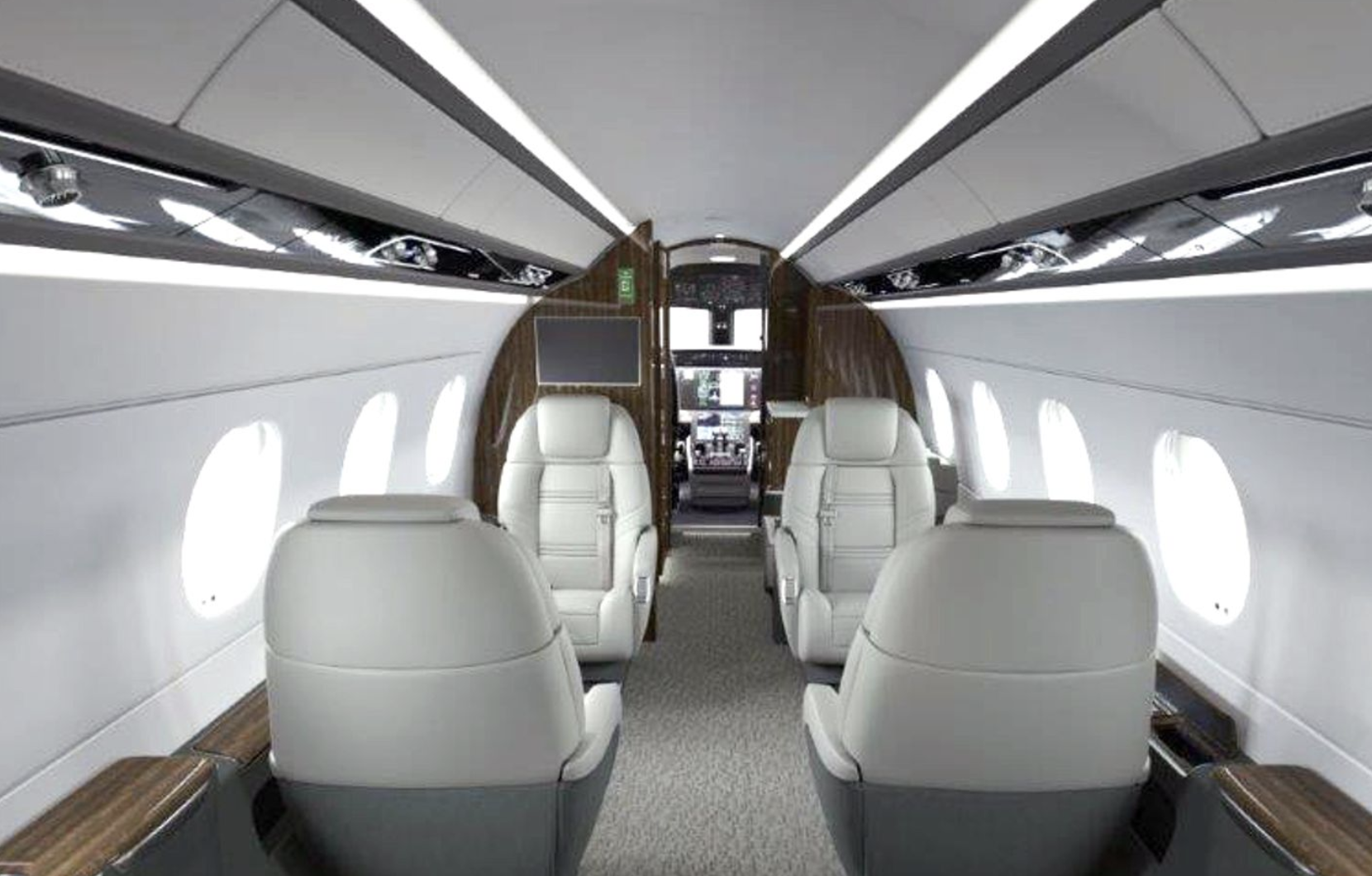FBOs are a mix of independent, locally owned and operated businesses, franchises, and chains. In some cases they are operated by the airport authority, however, most operate under a license from the airport or local government. Signature Flight Support is the largest with over 200 locations across the Americas and Europe. Atlantic Aviation has over 50 locations in the U.S. Million Air with about 25 private terminals is known for having plush lounges (Houston Hobby terminal pictured in the header) and upscale refreshments. Signature tends to be more utilitarian.
Jet Aviation and Clay Lacey Aviation, which both offer jet card products, also operate FBOs in several locations.
NetJets and Flexjet have their own private lounges at busy airports like Westchester Country, Teterboro, and Palm Beach, generally as a separate entrance to an FBO. Jet Linx operates its own terminals exclusively for its aircraft owners and jet card customers in 19 markets.
These lounges typically offer more significant snacks as well as complimentary sodas, juices, wines, and spirits. You can even request your favorite libations. Jet Linx will valet and detail your car while you are away, having it ready for you when you return.












